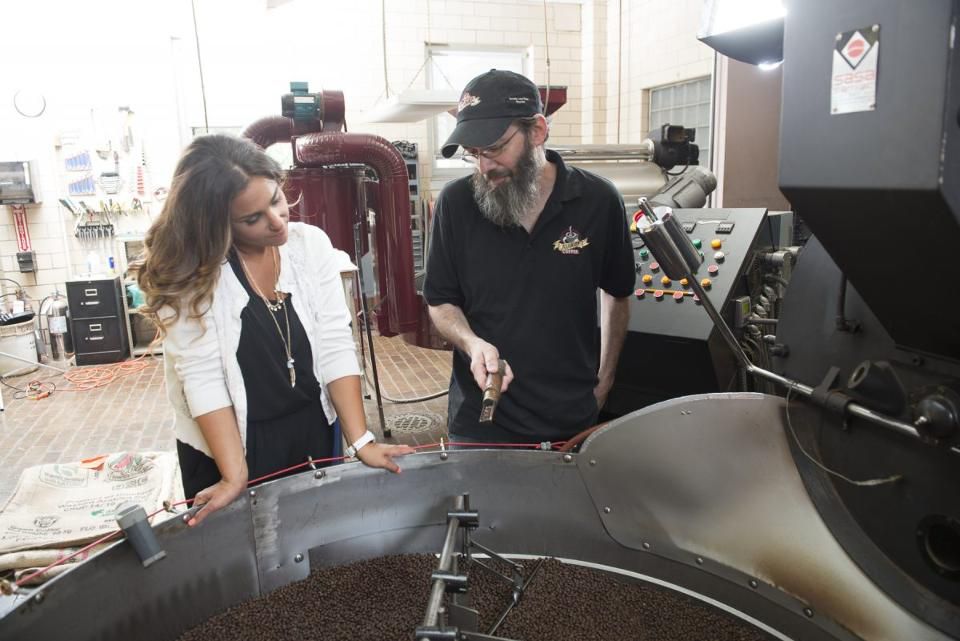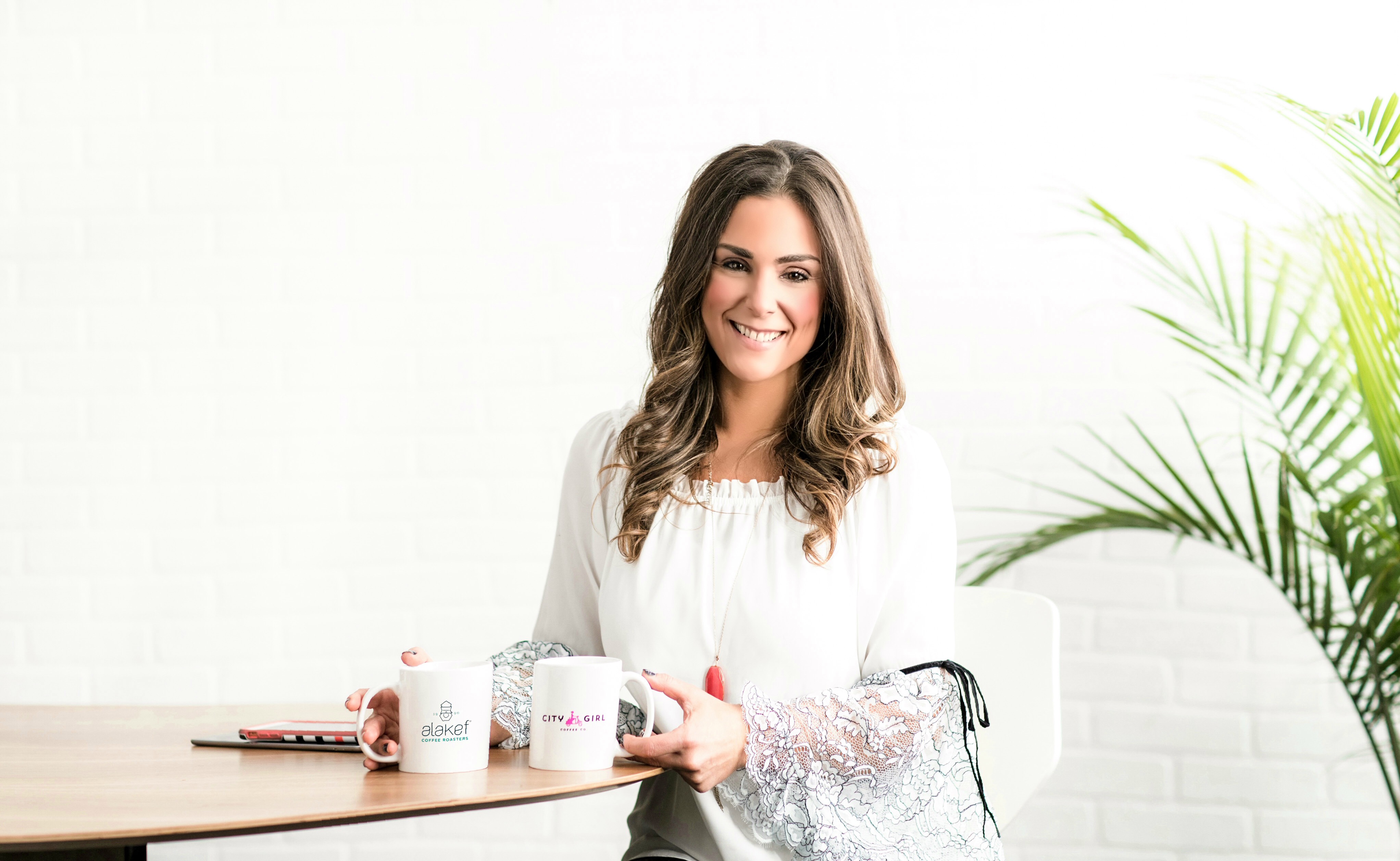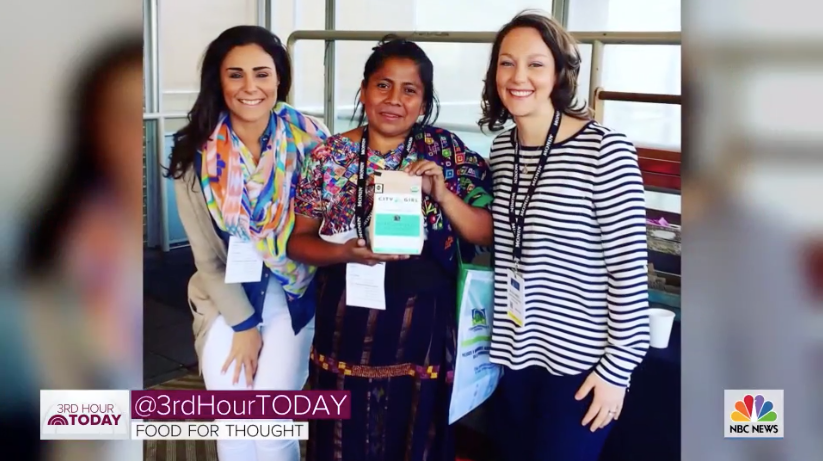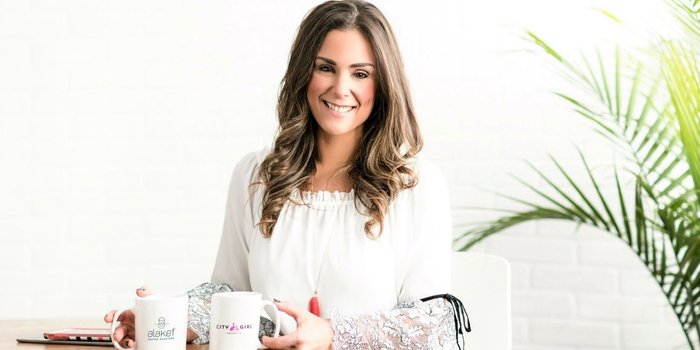Nearly 25 years after her parents started a tiny coffee roasting company in a basement in Duluth, Minnesota, Alyza Bohbot agreed to take full ownership of the family business. Acquainting herself with a primarily male-driven coffee industry, she attended an International Women’s Coffee Alliance event and was moved by the story of a Colombian woman who struggled to sustain her coffee farm after her husband died. Because this farmer was a woman, banks refused to provide the loans needed to keep the farm up and running.
Bohbot learned that while women play a major role in coffee harvesting, they often have little economic power or influence over sales. Increasingly invested in the plight of female coffee farmers, Bohbot decided to try her hand at making change and recalibrated her business mission to include more than selling specialty coffee in lakeside Minnesota.
Inspired to help the farmers responsible for her cherished daily cup, she created City Girl Coffee in 2015, a brand that aims to source from women-owned and managed farms – from Brazil to Indonesia – while working to raise consumer awareness of gender inequality in the world’s coffee-producing communities.
In this edited and condensed Q&A, Bohbot shares how she approaches the challenges of small business ownership and explains why social missions should be more than just a marketing tool.
Kara Stiles: What was the inspiration for creating the City Girl Coffee brand?
Alyza Bohbot: I wanted to create a brand where we sourced all of the coffee from women-owned and managed farms from around the world, and then worked with organizations like the International Women’s Coffee Alliance and Café Femenino to give back to these women, to create more of a sustainable coffee industry and to put more of the focus on women – who don’t always have access to resources, education and funding.
Stiles: I imagine you juggle some unique challenges as a small business owner since City Girl depends on female farmers across the world, often in developing or impoverished regions. How do you manage this?
Bohbot: I sit on the board of the International Coffee Women’s Alliance, so that’s opened up a lot of avenues to access these women, but we really rely on the relationships with our importers, relationships we’ve had for well over 20 years. They have a capability of working more closely with a broader range of farmers. I just don’t have the resources to go and travel to every different country or travel constantly to these farms, and so we relied on these relationships with the importers to say, “We want to source from women. What farms do you have relationships with?” We’re able to really rely on some of those larger partnerships to help us with sourcing and ensuring that we are in fact supporting what we say we’re supporting.
Stiles: Beyond forming and nurturing these relationships, what else is most difficult for you as a small business owner?
Bohbot: As a sole woman owner, you have to wear a lot of different hats. They always say, “At some point you have to work on the business and not in the business.” You’re not doing the company any favors by being bogged down. Sometimes you have to take a step back and know what resources are available to you as a small business owner to allow you to be the visionary.
We also want to be able to offer candidates the most competitive package, but sometimes I’m not able to offer them what a larger company might offer them. I try to segment that with flexible hours and other company benefits. But as a small business, there’s only so much money. You can’t always afford to give everybody what you’d ideally love to give them, to represent the work and value that you think that they have.
Stiles: So you find yourself competing with bigger companies for top talent. How would you advise other small companies approach attracting and retaining top candidates?
Bohbot: Salary isn’t the only thing that a candidate is interested in, and so for us it’s been finding out what is important to a candidate before offering them a competitive package. There are different ways to get creative and structure employment packages that still feel really competitive and fulfilling to a candidate without being necessarily the highest-paying offer that they’re going to receive. It’s important as a smaller company to take the time and ask potential candidates, “What do you value? What is important to you? What would feel like a competitive package to you?” And that’s not always base salary.
Stiles: Who are your consumers and how do you get them to really care about your sourcing and, more broadly, the cycle of poverty and gender inequality facing women in the industry?
Bohbot: I think millennials are a large target population for us. As a group they’re much more conscientious about what they’re purchasing and from whom. Nobody in the coffee industry was specifically focused on these issues and I think we were on time and on the right side of things as this became a more prevalent topic in the coffee industry.
For us, it’s not just a marketing tool. It’s really sincere to the brand and sincere to the mission of what we’re trying to do. It’s coming from such a genuine place within me, within the company, and everybody who works on my team really just feels so passionately connected to the work that we’re doing, the product that we’re providing and the overall impact of what’s happening. I think consumers see that and feel that.
Stiles: How do you familiarize yourself with your audience and consumer base in order to better reach them via City Girl’s social media presence?
Bohbot: We’ve spent time digging into the psyche of our City Girl consumer to help guide us, giving her a name and asking “Where does she shop?” and “Who else does she follow on Instagram?” A little bit of it was watching and listening to what other like-minded companies were doing and being very aware of trends.
Stiles: Can you discuss how you incorporated social media as a marketing tool and describe your digital presence? I see that your website is feminine, conversational – and very pink.
Bohbot: We have cute colors, cute branding and we want to be a pertinent lifestyle brand because you just have to be in order to be competitive in the coffee industry. So we embrace that but we go beyond that. Having a sort of lifestyle approach to our Instagram is a great way to draw people in and then drive them to the website for that deeper content.
What we’ve found is that the engagement is just less significant when we do more of the heavy content. Whereas it’s more significant once they get to the website. We want Instagram to be like the cover of our book: it’s fun, it’s lifestyle and it drives you to pick up the book. Then, you’re gonna flip it over and you want to read.
Stiles: Looking back on the beginning of the City Girl brand, do you feel you made any mistakes?
Bohbot: People told me, “Don’t do too much. Pick something, focus on it, do that really well and then move onto the next thing.” But within the year that I took ownership and started the City Girl brand, I tried to open a café space inside of a grocery store and it was too much. Essentially, I tried to take one business and turn it into three in my first year of owning it, and looking back, it was a terrible idea. Trust your gut and really stay focused on the things that are most important to you in the right now.
Stiles: Your aim is to sell good coffee while advocating for your farmers. What’s your advice for entrepreneurs interested in incorporating a social cause into their business?
Bohbot: I think there’s a distinction between companies who genuinely have a purpose and really want to make a difference and companies who feel like they need to have an additional marketing piece. So I would always say: if you’re going to rest your hat on the fact that you are a company who is trying to make an impact on the world, have that be genuine, have that be a true pillar of your business model and not just an afterthought or marketing tool.
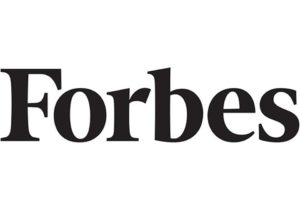 Follow Kara on Twitter @karasstiles.
Follow Kara on Twitter @karasstiles.

